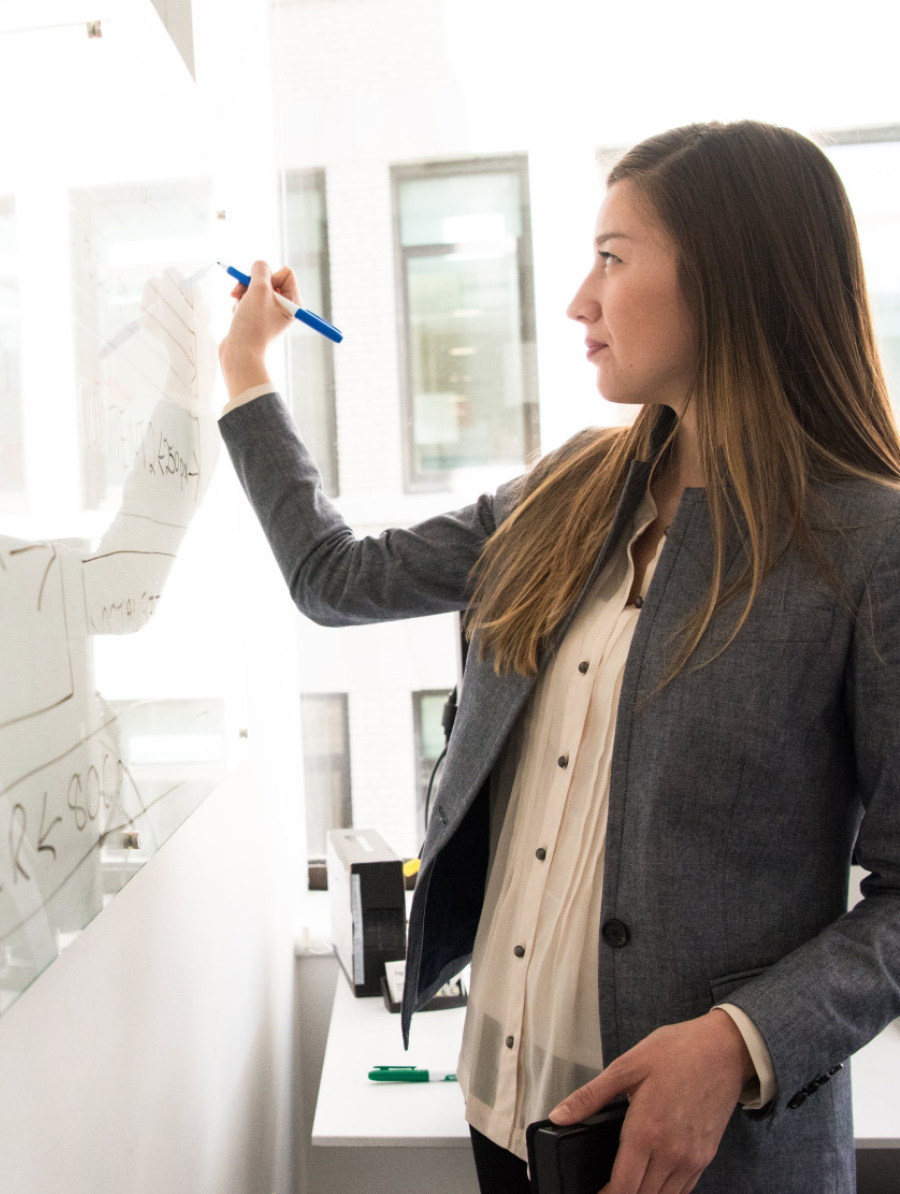Harness the Future Through the CPA Metaverse, School of Innovation by Patricia O’Neill & Aisling Mooney

It is clear that the opportunities presented by immersive technology are extraordinary.
RPA, more commonly known as digitalisation, is a complex and, to some, an uninteresting topic that can be challenging to understand.
Virtual Reality has the power to make difficult, abstract concepts more concrete, making it an ideal learning channel for training accountants on the organisational applicability of RPA. In the CPA Metaverse we have created engaging and fun ways to understand the benefits, opportunities and challenges of implementing RPA in an organisation.
By requiring learners to work as a team and using gamification, experiential learning and data visualisation, CPA Ireland has created an environment that greatly increases the engagement, understanding and confidence of the user. This is the foundation on which the CPA Metaverse, School of Innovation is built.
Research conducted by PWC on the effectiveness of VR training highlights its many benefits:
- Increased Confidence:
Virtual reality (VR) learners were up to 275% more confident to act on what they learned after training—a 40% improvement over classroom and 35% improvement over e-learning. - Improved Focus:
VR learners were up to four times more focused than e-learners. - Speed of Learning:
VR learners completed training on average four times faster than classroom training and 1.5 times faster than those learning though more traditional online learning tools. - Connection with Material:
VR learners were 3.75 times more emotionally connected to the content than classroom learners and 2.3 times more connected than e-learners.
Additionally, immersive learning creates an exceptionally engaging learning experience.
- Provides a psychologically safe environment to try new things, make mistakes and practice new skills and behaviours.
- Enables members and students to collaborate and learn together in an entirely new way no matter where they are physically located.
- Provides multiple ways to learn – from practical application, to engaging with and observing simulations, to reflecting on what went right/wrong, to real-time feedback.
– Seneca
In order to do this, learners must articulate their own understanding of a topic which, in turn, helps all team members to grasp new concepts.
A key challenge some of our accountancy students face is the lack of opportunity for on-the-job training in Digitalisation, or Robotic Process Automation (RPA). This issue is significant because those students who select Data Analytics as one of their Strategic Level subjects may not have the opportunity to apply their academic learning in the workplace. Data visualisation within the VR platform will build on the content of the Data Analytics Syllabus.
The students will be able to integrate their learning in VR within the overall “on the job” training requirements needed to become fully qualified. Training in the Metaverse will then be demonstrated through real life application within their workplaces.
A key benefit of learning in VR is the ability to replicate real world scenarios in the virtual world. This provides learners with a hazard-free environment to make mistakes, learn from those mistakes and try again. By practising in virtual reality, we reduce the potential for the negative impact incorrect decisions have in the real world.
We had found the ideal scenario to pilot a programme using immersive technology: Robotic Process Automation (RPA)

With the rapid growth of Python as a programming language for automation purposes, coupled with the power of tools like Google Colab, accountants now have an extensive toolkit at their disposal, allowing them to provide more comprehensive insights and help businesses make data-driven decisions.
By learning how to apply sophisticated tools to automate data entry, reconciliation, financial reporting while reducing the risk of human errors & time required to complete tasks, accountants are free to focus on more strategic tasks like analysis and advisory services.

The 2022 Irish Immersive Economy Report highlighted that, in Ireland, the Immersive technology sector is currently worth over €43 million, with significant potential for future growth as 63% of businesses in the sector expect to grow in the coming 12 months.
Additionally, they highlighted that “Global spending on artificial and virtual reality in education is expected to soar from $1.8 billion to $12.6 billion annually over the next four years”.1
Using Virtual Reality as a Learning & Development tool is exciting and effective but it won’t take over from classroom, standard e-Learning or on the job training in the immediate future.
Derek Belch, founder and chief executive of Strivr, told the Financial Times this September that “Widespread use of VR for training will take time …. but Apple’s launch of an augmented reality headset and Meta’s continued investment are significant. “Meta is certainly going to push very hard on the consumer side,” he says. “Consumer ubiquity is coming in the next three to five years.”2
A huge congrats to Trish O’Neill, Aisling Mooney and Reidin Ni Aonghusa for a fantastic launch. And to our own amazing team Rob Nelson and Yiting Liu for delivering such a great piece of work”.
The funding from Skillnet Ireland gave us the opportunity to ‘Think Big’ and it was a pleasure to invite them to experience the programme in advance of the launch. ‘”I really valued the experience of being in the CPA Metaverse Innovation Academy. The Metaverse Academy is a unique and engaging way of learning that can make challenging training more enjoyable for the learner”, Nick McClafferty, Development Advisor, Skillnet Ireland.
Finally, we were excited, and a little nervous, to welcome our first group of members to the CPA Metaverse in October. We are very grateful for their willingness to both try something so new and to give us feedback that will help to improve our future sessions.
“The experience was novel and fascinating and a valuable insight into the future of knowledge transfer. I thoroughly enjoyed the session and found the course content more interesting when delivered through this medium”, Ken Heade, CPA Ireland member.
- Source: Edweek Market Brief, Global Spending on Virtual Reality, AI in Education Poised to Skyrocket, Report Says, 17th February 2021, as highlighted in The Irish Immersive Economy Report 2022.
- https://www.ft.com/content/1f71b21b-93b3-4057-91cf-0ac813187e29

Director, Member Services, CPA Ireland

Member Services, CPA Ireland